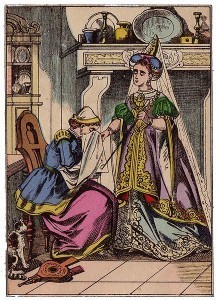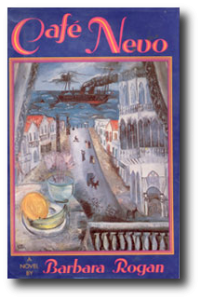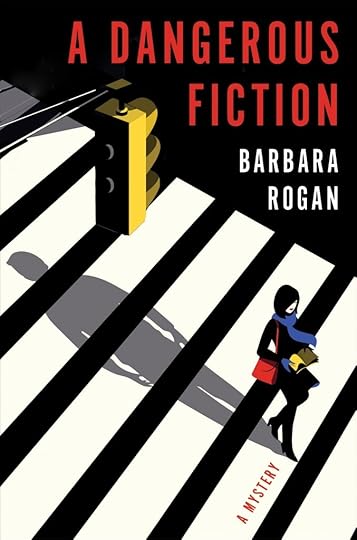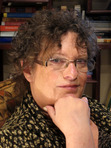Barbara Rogan's Blog, page 7
April 10, 2013
What Writers Can Learn From Game of Thrones
 Send to Kindle
Send to Kindle
My name is Barbara, and I’m a Game of Thrones addict.
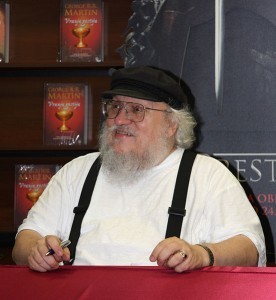 I know I’m not alone. George R. R. Martin has millions in his thrall, captives of the TV series and/or the books on which it is based. For me, it started with the first season. I watched an episode or two, enough to realize that there was no way I was waiting years for the series to play out. So I started on the books; and several thousand pages later, I looked up wearily and realized that three weeks had passed.
I know I’m not alone. George R. R. Martin has millions in his thrall, captives of the TV series and/or the books on which it is based. For me, it started with the first season. I watched an episode or two, enough to realize that there was no way I was waiting years for the series to play out. So I started on the books; and several thousand pages later, I looked up wearily and realized that three weeks had passed.
After withdrawal, I was left with two questions. What makes this series so compelling, and where can I get some? I’m a novelist myself, and I teach writing, so I recognized the basic ingredients. Great characters? Check. High stakes? The highest: life or death, honor or disgrace, the fate of kingdoms. Interesting settings? Fascinating and vividly imagined. All sterling attributes in a novel, and enough to make any work compelling, but I felt that something more was needed to explain the three-week hole Martin’s books had blasted in my life.
And then last week, as I watched the latest episode, it finally dawned on me. The scene was one in which Cersei visits Tyrion in his much diminished quarters to suss out what he plans to tell their father. Tyrian, in turn, wants to know precisely what she’s afraid he’ll say. The dialogue between them, brilliantly written and acted, shows each one trying to elicit information from the other while concealing his/her own intentions and concerns. Each character had a strong agenda, and those agendas were at odds.
What I realized at that moment was that the same could be said of nearly all Martin’s scenes. The man seems incapable of framing any scene that is not full of conflict and hidden agendas. In scene after scene, his characters use manipulation, intimidation, flattery, seduction and every other means of persuasion to impose their will.
Sometimes the conflict is on the surface, and other things are going on underneath. Brianna and Jamie Lannister are clearly at odds as she attempts to deliver him safely to Kings Landing in return for hostages and he attempts to escape. That’s in the foreground. In the background, hardly noticed at this stage, is a growing affinity which adds depth to their scenes.
Other times, the conflict is hidden behind a veil… but it’s always there, animating the scene. Even when the primary purpose of the scene is to convey necessary information, Martin (and the series’ screenwriters) find ways to bring out the inherent conflict. For example, there is a scene in which Catelyn Stark and her son, Rob discuss the death of her father: not a particularly dynamic passage. But as they make plans to attend the funeral, Caitlin is in chains, and Rob has not forgiven her treachery. They love each other but they are at odds, and that strife bubbles to the surface of the scene.
Now, none of this is groundbreaking fictional technique. Good writers strive for maximum tension in their work, and conflict is one of the best ways of producing tension. Better writers know that all their characters, including the secondary ones, have agendas and act on them in one way or another. But only the best writers execute these principles consistently in scene after gripping scene.
So this is what I’ve learned from Martin: to seek out those hidden agendas; to frame scenes to take maximum advantage of conflicts between those characters; and to do this not once in a while, but in every scene.
How about you? Have you read Game of Thrones, or watched the TV series? What do you take away from it?
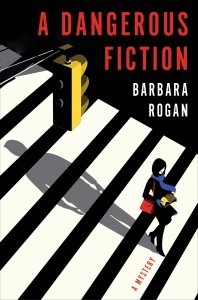 My latest mystery, A Dangerous Fiction, is coming out in July 2013 with Viking Books. It’s available now for preorder in hardcover and e-book, with a large discount on preorders of the hardcover. Also, please check out my other titles, newly available as Simon and Schuster e-books: Suspicion, Hindsight, and Rowing in Eden.
My latest mystery, A Dangerous Fiction, is coming out in July 2013 with Viking Books. It’s available now for preorder in hardcover and e-book, with a large discount on preorders of the hardcover. Also, please check out my other titles, newly available as Simon and Schuster e-books: Suspicion, Hindsight, and Rowing in Eden.
April 1, 2013
Are Writers Too Accessible?
 Send to Kindle
Send to KindleLike most writers, I was a voracious reader as a kid. Naturally I had favorite authors, though they never heard it from me. In those days, before PCs and the Internet, the only way to contact an author was to write a letter care of the publisher and hope that it was passed on; but that wasn’t the reason I didn’t try. It simply would never have occurred to me. I thought a lot about the books that captivated me, but if I thought of their authors at all, it was as unapproachably remote beings who dwelt in a literary Valhalla or possibly a garret in Paris, emerging from time to time to bestow their largess upon the world.
Then I grew up and went into publishing, and I discovered that writers were regular people with kids and mortgages and bad hair days. They weren’t as witty or clever or daring as their characters; they were smart but otherwise ordinary folk distinguished only by their invisible mastery of a difficult craft. But for me, that singular distinction was enough to set them apart and above. I was a literary agent for twelve years without ever fully overcoming my reflexive awe in the presence of writers I admired.
It is impossible to revere without longing to emulate. When my own work found its way into print, surprisingly little changed. Most of the time, for months at a time, I worked in my home office all day, dressed in extremely unglamorous sweats, emerging with glazed eyes whenever the clamor for dinner grew loud enough. Co-presiding over a messy but surprisingly functional ménage of two adults, two boys, and a couple of German shepherds, I was gratified by my elevation to the ranks of published authors, but I was decidedly not living in Valhalla. Still, every time a new book came out, I got to step out of my cave, clean myself up, put on a decent suit and become Barbara Rogan, Author, for an afternoon or an evening. To be an author was to be that which I had revered as a child. It was discomfiting to find myself the object of what now seemed misconceived adulation: discomfiting, but flattering.
Now we live in a world of constant and immediate accessibility. There’s hardly a published writer alive who doesn’t have a website, and many have blogs, Facebook pages, twitter accounts, etc. Readers now can learn all they want and more about the writers whose work they follow. They can contact them directly with just the push of a key. And the opposite is true as well. Writers can eavesdrop on readers’ discussions, read and rank their reviews, answer their questions, and heap abuse upon the insufficiently appreciative: not a common occurrence, fortunately, but Google “writers behaving badly” if you want to get an eyeful.
So here’s my question: Do you think writers now are too accessible?
I have mixed feelings. Mostly I think it’s a very good thing. Getting letters from readers was always one of the most fun parts of the job, but the ease of communication has greatly increased the flow. Writing is a solitary job, so feedback from smart readers is deeply encouraging. I started this blog eight months ago, and I enjoy the interaction it has brought me. I tweet as @RoganBarbara, I have an active Facebook author page, and I like being a part of the wider world.
And yet there is a downside. Writers are rarely as compelling as their best work, in which case a bit of mystery can be a good thing. And a great novel can seem like a found object rather than an artifact: something shaped by natural forces into a necessary and harmonious form that gives us pleasure. The brush strokes don’t show; the messy erasures are gone. That someone wrote the book feels almost irrelevant. In the past readers had only the book itself to relate to, and one could argue that this is how it should be. In this view of things, focusing on writers instead of on books is like handing out Academy awards to the parents of the winning actors.
What do you think?
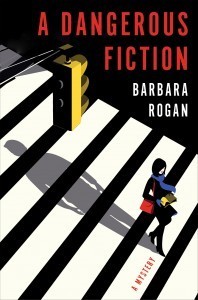 Barnes and Noble in Carl Place, New York, has kindly invited me to celebrate the release of my new book, A Dangerous Fiction, with a reading and signing on the official pub date, July 29, 2013. We need to support our local bookstores while we still have the chance. I hope everyone who can will come out and join me at 7 PM. Please mark your calendars and spread the word!
Barnes and Noble in Carl Place, New York, has kindly invited me to celebrate the release of my new book, A Dangerous Fiction, with a reading and signing on the official pub date, July 29, 2013. We need to support our local bookstores while we still have the chance. I hope everyone who can will come out and join me at 7 PM. Please mark your calendars and spread the word!
March 21, 2013
CAFE NEVO Gets a New Life, and Other Amazing News
A brief note to all my readers: Lots of wonderful stuff has been happening these past months, including preparations for Viking’s publication of A DANGEROUS FICTION and, almost as exciting, the reissuing of several previous books that have long been out of print. Right now we’re at the final stages of preparing A HEARTBEAT AWAY for its close-up. Set almost entirely in a Tel Aviv cafe called Nevo, this is my second novel and one that’s particularly close to my heart. It received heartwarming reviews when it came out. Kirkus called it “an inspired, passionate work of fiction…a near-magical novel,” and the San Francisco Chronicle wrote, “A wonderful novel … vivid … unforgettable.” It also got amazing blurbs from two of my favorite writers, Madeleine L’Engle and Alice Hoffman. Here’s the old cover, which I loved:
I’ll post the new one as soon as it’s finalized—I’m very excited to show it off.
I’ve also started hearing from readers who’ve discovered some of my other novels, recently reissued as ebooks by Simon & Schuster. It’s a wonderful thing for writers that their backlists can so easily be kept in print; before the advent of ebooks and POD, that was a privilege enjoyed by only a few top-selling authors. If you’ve discovered SUSPICION, ROWING IN EDEN, or HINDSIGHT, there’s nothing I enjoy more than hearing from readers.
Things are starting to heat up as the July pub date of A DANGEROUS FICTION approaches. I’ve offered to visit any book club that chooses to read that book, for which Viking has released a Readers Guide, via skype or phone or even in person if it’s not too far. A rash offer, perhaps, but it’s still open. Contact Ben Petrone at “Bennett.Petrone at us.penguingroup dot com” if you’d like to schedule a visit–or let me know directly.
While I post here only once every week or ten days, I’m constantly updating my FB author page and chatting with folks there. Please like it to stay in touch. I’m also on Twitter as @RoganBarbara.
Thanks as always for your support and interest. And now, back to writing.
March 16, 2013
David vs. Goliath
Writer Jeannette Vaughan ran an interesting blog post recently, entitled “The Amazon Ripoff,” in which she argues that Amazon And CreateSpace underreported sales of her book, released by indie publisher Age View Press. If she’s right, this is bad news indeed for self-published writers and indie publishers, for whom Amazon is the essential outlet. Even if it’s not true, the allegation itself highlights the fact that in the relationship between a self-published writer and Amazon, the balance of power is so heavily weighted to Amazon’s side that it can hardly be called a balance at all.
If Random House or Simon and Schuster are unhappy, Amazon may not concede the issue but has to take it seriously. But a complaint from John Doe, self-published author of Buy My Book Please, worries the behemoth as much as a gnat worries a grizzly.
I don’t know if Jeannette Vaughan’s accusations are correct or not. As far as I can tell, neither CreateSpace nor Amazon has answered them publicly. It’s not uncommon for writers to overestimate their sales, nor for readers to claim that they bought a book they actually didn’t. Still, any business relationship as lopsided and free from oversight as this one is potentially ripe for exploitation.
“Trust but verify,” Reagan used to say, and literary agents adopted that policy long ago. Their contracts always include a clause that allows writers to audit the publisher’s accounts as they pertain to the author’s work, at the author’s expense if the books balance, the publisher’s if they don’t. That clause isn’t often implemented, but often enough to keep publishers honest. Self-published writers have no such recourse with distributors like Amazon, nor do they, as individuals, have the power to demand the right to audit.
So what’s a self-published writer to do? Not a whole lot at the present, as far as I can see. In the future, though, there is power in numbers when individuals unite. The Writers Guild recently opened their doors to self-published writers who’ve sold a certain number of books in the past year. If such writers join in large numbers, the Guild might advocate on their behalf for an audit clause or some other neutral-party means of conflict resolution. Self-published writers could also form their own trade group, which could gain enough heft to negotiate on behalf of its members.
What do you think? Is there really a problem, and if so, how can it be resolved?
A DANGEROUS FICTION is now available for pre-order, and most vendors are offering early buyers a 35% discount on the hardcover edition. Viking/Penguin has also released a wonderful Readers’ Guide to the book–do check it out! Meanwhile, Simon & Schuster has reissued my last three novels as ebooks. If you like mysteries and ghost stories, try SUSPICION: it’s both.
March 4, 2013
Query Fails: Why They Happen
In my eternal quest for procrastination, I turned this morning to Slushpile Hell, a site to which writers have turned from time immemorial (since 2010) for a hearty laugh and a pleasant glow of superiority. The query letters on this site are so bizarre, clueless and illiterate that I would be tempted to believe the agent who curates them made them up, had I not been an agent myself for many years, during which time I received similar letters.
We passed those around the agency, I will admit. Agents do. It’s gallows humor of the sort ER doctors used to blow off steam. Outsiders, listening in, might have thought us heartless, but outsiders never had to wade through a literary agent’s slush pile, which for people who love literature and language is as much fun as vivisection is for animal lovers.
So I went to the site and read some of the letters and laughed at the snarky replies; but at the same time found myself feeling sorry for the clueless writers of those queries, which seemed to fall into two general categories: the misled and the misbegotten.
 The misled are the writers who believe they have to sell themselves to the agent the same way you’d sell detergent. They praise their own work, which to any professional is a cringe-making gaffe that screams Amateur! “This book is different from all other books; this book will make us both rich; this book will make you laugh and cry; this book is far better than the drivel put out by [insert name of best-selling author].” Real writers don’t talk about their work that way. They let it speak for itself. It’s not impossible that the author of such a letter could have written a good book, but it’s unlikely that any agent will asked to read it.
The misled are the writers who believe they have to sell themselves to the agent the same way you’d sell detergent. They praise their own work, which to any professional is a cringe-making gaffe that screams Amateur! “This book is different from all other books; this book will make us both rich; this book will make you laugh and cry; this book is far better than the drivel put out by [insert name of best-selling author].” Real writers don’t talk about their work that way. They let it speak for itself. It’s not impossible that the author of such a letter could have written a good book, but it’s unlikely that any agent will asked to read it.
The misbegotten are those of whom it is said “everyone has a book in him.” Perhaps everyone does, but that doesn’t mean they should let it out. Some query writers seem completely unaware of their ineptitude with the language. Anyone who would send an ungrammatical, misspelled, totally incoherent query letter cannot possibly have written a book worth reading; and there are many examples of these on the website. Other query writers are delusional people drawn to writing in order to propagate their delusions. Every agent who’s been in the business for any length of time has received book proposals from messianic messengers of doom and revelation. These are often but not always religious, but they all have discovered the secret to life. Those letters range from sad to bizarre to scary, depending on the writer’s philosophy.
Speaking of misbegotten messengers, I’d like to give a shout out to my son’s alma mater, Vassar College, which was recently targeted by the Westboro Baptist Church, those lovely folk who like to picket the funerals of American servicemen. As a direct response to this group’s action, Vassar students and alumni raised over $100,000 in a matter of weeks for the Trevor Project, an organization that helps LGBT youth. Way to make lemonade out of lemons, Vassar!
Writers who are currently seeking agents should not be deterred by sites like Slushpile Hell, but rather learn from them. These days there are so many excellent resources for writers available online that there’s no excuse for cluelessness. Before you send that query, run it by the savvy folks on Absolute Write, Agent Query, or CompuServe’s Books and Writers forum. You can also find a lot of advice on writing query letters on this blog—just click on “query letters” in the categories box to the right— with additional resources listed here.
Writing a decent query letter isn’t rocket science. It’s a business letter, not a confessional. From the perspective of top agent Gail Hochman : “A letter that is interesting to read means the writer might have something interesting in his manuscript.” If you present yourself as a reasonable, interesting person with a compelling story to tell and enough pride in your writing to compose a letter with flawless grammar and punctuation, agents will want to read your work.
Or won’t they? Let’s hear about your experiences with query letters and agents.
February 21, 2013
Republic Of Writers
Writers are known to live in their own worlds, so giving them a country of their own seems a modest enough proposal. Indeed, as they have created so many worlds for the benefit of others, it is the least society can do to repay them. The location of this Republic will require consideration. A corner of Belize would be ideal, that country permitting, but other venues may be proposed.
As for the laws and mores that will govern such a Republic, I will have to group-source that project; the concept is too large for one writer’s brain. But here, in no particular order, are a few opening suggestions:
1. Official currency: Chocolate
2. Time-honored tradition: Upon finishing final edits, writers send every writer they know a box of said currency.
3. Safety: Crossing guards at all intersections for writers lost in thought or reading as they walk. (Foreign crossing guards, naturally. Natives would be useless.)
4. Border patrol: Literary agents.
5. Firing squads: Critics.
6. Gun laws: Imaginary weapons only, but no limit on those.
7. Sustenance: A chicken in every plot.
Your proposals, please.
February 15, 2013
Behind the Curtains: What Publishers Really Do
An awful lot of what publishers do for books, they do behind the scenes and prior to publication. Viking/Penguin is going to publish A DANGEROUS FICTION in late July, and they are gearing up in all sorts of ways. I thought readers might be interested in a glimpse behind the curtain.
Editing: packaging is important, but you’ve got to deliver the goods. Good editing makes any book better and good books shine. Shortly after its acquisition by my delightful editor Tara Singh, A DANGEROUS FICTION underwent a series of first-class edits and emerged the better for it.
Cover: Positioning a book starts with a cover that conveys the message and ambience of the work. Because the cover is also a marketing tool, it exemplifies the approach of the publishers’ marketing plan. If the author and publisher are not on the same page, this is where the fissure usually appears first.
Viking’s cover, by London-based French artist Malika Favre was the most perfect face I could imagine for the book I wrote. If the tone of the book could be converted into a picture, that picture would be this cover. At this point in the process, I am feeling the love.
Blurbs: Many months before publication, copies of the manuscript were sent to writers who expressed a willingness to read and possibly write blurbs for the book. For me, this marked the first time this book had been read by anyone outside my agent, editors, and immediate family. One by one, reactions began to come in. I’m very grateful to the writers who took time from their own work to read A DANGEROUS FICTION, and I’m proud to share their comments with you now.
“A terrific read! A thriller with a psychological heart of mystery, a double-ended love story, and a fascinating look at the world of high-stakes publishing.”-Diana Gabaldon, New York Times bestselling author of Outlander and An Echo in the Bone
“Clearly, the most dangerous fictions are the ones we tell ourselves.” JA Jance, author of DEADLY STAKES and many other bestsellers
“A Dangerous Fiction reads like a tell-all, inviting readers into the sleek, hallowed inner circle of literary Manhattan, then blowing that world apart with harrowing intrigue and a gripping mystery. Finally, as a bonus, Rogan offers a surprisingly sweet redemptive thread with which to stitch it all back together. A Dangerous Fiction blends deft prose with a pitch-perfect voice, and Barbara Rogan is a storyteller at the top of her game.”-Vicki Pettersson, author of Cheat the Grave and The Scent of Shadows
“Barbara Rogan knows the world of writers, agents, and editors, and in A Dangerous Fiction she offers a vivid inside look at both the glittering successes and the failures that breed feuds and obsession. As a stalker resorts to murder to destroy literary agent Jo Donovan’s life, readers will cast suspicious glances at everybody from a disgruntled former employee to a rejected writer to Jo’s most trusted friends. A Dangerous Fiction is great entertainment!”–Sandra Parshall, Agatha Award-winning author of the Rachel Goddard mysteries
“The backstabbing and cutthroat competition we imagine going on behind the scenes in publishing make it the perfect setting for murder, and Barbara Rogan has done it justice in A Dangerous Fiction. I loved every wickedly delicious page.”-Hallie Ephron, author of There Was an Old Woman
“Barbara Rogan’s A Dangerous Fiction positively drips with intrigue and delicious suspense. I couldn’t put it down—and you won’t want to, either.”—Lorraine Bartlett, author of the Victoria Square Mysteries.
“Rogan brings an insider’s keen view, pulling the reader into the New York publishing milieu with all of its jealousies, intrigue, excitement and larger-than-life personalities. At the heart of the story is a woman’s need to uncover the truths about her own life, even as she’s the target of malevolent foes she can’t identify. Danger, suspense, romance and the deep bonds of friendship–A Dangerous Fiction has it all. I couldn’t put it down!”-Darlene Marshall, author of Castaway Dreams
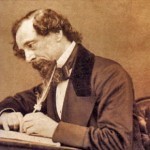 I received a few other blurbs as well, from some Very Illustrious Writers, but for some reason my editor doesn’t want me to post them along with what she insists on calling “the real blurbs.” But you can read them anyway, right here.
I received a few other blurbs as well, from some Very Illustrious Writers, but for some reason my editor doesn’t want me to post them along with what she insists on calling “the real blurbs.” But you can read them anyway, right here.
Review Copies: Five months before publication, bound galleys are already out to long-lead reviewers. In a few months, the prepublication reviews – PW, Library Journal, Kirkus – will appear. I’m not thinking about that. Not a bit. Never read reviews. And if you believe that, I have a bridge that may interest you…
Sales and Marketing: I believe that the books are being sold into bookstores nationwide by the Viking’s terrific sales force even as I write this; so, being a somewhat superstitious person, I will say no more.
Bookstore appearances, Book and Author Luncheons, conferences, etc.: These are already being scheduled, starting in July, for the New York area. I’m infinitely corruptible and shamefully approachable. If you have any offers, please direct them to Ben Petrone, Associate Director of Publicity at Viking.
The Readers’ Guide to A DANGEROUS FICTION has just gone live for use by book clubs and library reading groups. I think it’s terrific; it even taught me a few things about the book I didn’t know. Do have a look. I’m open to participating by phone or Skype in book club discussions of A DANGEROUS FICTION; just contact me at Barbara Rogan at Gmail dot COM.
So much of what publishers do is invisible and goes uncredited. I’d like to take this opportunity for a shout-out to the dedicated folks at Viking for their hard work and support. And next time someone asks, “What do publishers really do for writers?”, point them here.
A DANGEROUS FICTION is now available for pre-order; and most vendors are offering early buyers a 35% discount on the hardcover edition. While you’re waiting for that to arrive, my last three books, SUSPICION, HINDSIGHT, and ROWING IN EDEN, have been reissued in ebook and paperback.
February 5, 2013
Breaking Up Is Hard To Do: On Series and Stand-Alone Novels
Writing novels is like having a series of intense love affairs that never end in marriage; therefore, I am well acquainted with breakups. I don’t mean characters breaking up with each other, but rather characters leaving me at the end of each book. No matter how often it happens, it’s always a jolt. For a year or two, we’ve been inseparable, me living through them, them drawing their very breath from me. As the story advances, the relationship intensifies to the point that I feel as if I’m living two lives, my own and my protagonist’s. Transitions from one life to the other are neither effortless nor seamless. I find it easier to enter into the story then to leave it. The characters’ problems seep into my dreams, and even in my waking life I sometimes see through their eyes.
And then suddenly it’s over: the story is finished. It will be a long goodbye: there are edits to come, months to go before our final parting. But once that last page is written, it’s the beginning of the end.
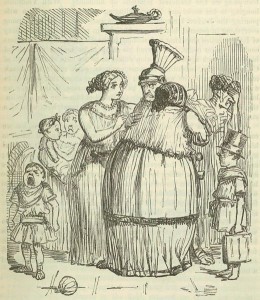
Sometimes partings come before the end of the book. Characters die. When they do, I go through a period of mourning that mimics the real thing. I don’t mind saying that I have wept for fictional characters. It comes with the territory. As Robert Frost said, “No tears in the writer, no tears in the reader.”
But when the book ends, I lose them all. The comfort is that they do not die but go out into the world, rather like adult children leaving home to fend and speak for themselves. It’s painful, but one grows used to it; and their departure leaves room for other characters to grow.
What happens, then, when the adult children come home?
I’ve never written a sequel. All my books have been stand-alones, with their own the cast of characters and settings. But my latest novel (A Dangerous Fiction, coming out with Viking in July 2013) is a departure: the pilot book of a series. That wasn’t my intention when I started A Dangerous Fiction. I thought I was writing another stand-alone novel, this one a mystery about a New York literary agent named Jo Donovan who is stalked by a frustrated writer. I grew very fond of Jo. She’s probably the most complicated, flawed protagonist I’ve ever created; but she has qualities I particularly admire, including courage, loyalty, and resilience. The idea of a series came originally from my editor at Viking; but my reaction to her suggestion – a virtual tsunami of plot ideas for Jo – was a sure sign that the idea had been brewing just under the surface of my mind.
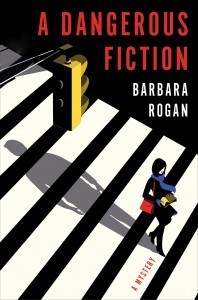 I was happy at the prospect of continuing with Jo, and quite sure her story didn’t end where the book did. But I was nervous, too. Could I, I wondered, resurrect Jo and her friends after I’d set them free? I don’t jump from one book to the next. I wish I could, but my brain needs recharging when I finish a novel. Would Jo still be there when I came back to her?
I was happy at the prospect of continuing with Jo, and quite sure her story didn’t end where the book did. But I was nervous, too. Could I, I wondered, resurrect Jo and her friends after I’d set them free? I don’t jump from one book to the next. I wish I could, but my brain needs recharging when I finish a novel. Would Jo still be there when I came back to her?
Now that I’m immersed in the new book, I’m happy to report that she did. She’s a bit older and a bit wiser, but not too much wiser. The reason she came back, I think, is that I left her with so many unresolved issues, jagged spurs to the imagination.
It strikes me that this is true of all the great series characters, who change and grow from book to book: characters who respond to the experiences they undergo. They’ve all got something eating them that all the therapy in the world won’t resolve. Walter Mosley’s Easy Rollins comes out of the segregated South with a chip on his shoulder that never goes away; neither does his attraction to dangerous women. Mma Ramotswe, Alexander McCall Smith’s avatar of good sense and clear vision, is haunted by a violent marriage in her past. Thomas Harris’s Clarice Starling hears lambs crying in the night and always will. These characters evolve in response to the events of their stories, but they never shed their essential, unresolved selves.
Does this make sense? How do you feel, as readers and/or writers, about series characters? What draws you to them, and what turns you off?
A Dangerous Fiction is available for preorder in all the major online bookstores. Right now there’s a 30% discount on the hardcover edition at Amazon and B&N. Go on – you know you want to read it.
January 27, 2013
Good Writers are Good Editors
Consider this scenario. The first novel of writer John Doe has landed on the desk of a leading literary agent. Attached to the title page is a post-it from the agent’s assistant: “Good writer!” it says. The agent eyes the note and sighs. She has meetings lined up back to back all day, fifty calls and emails to return, and a three-foot pile of manuscripts waiting to be read. But she has ten minutes before her next meeting starts, and so she reaches for the manuscript.
The first couple of pages are enough to tell her the writer has talent. She takes the manuscript home, reads a few chapters, and stops when she determines that the writing is not quite good enough. The next day, she hands it back to her assistant. “Close,” she says, “but no cigar.”
Potential isn’t enough. Talent doesn’t equal execution. Either it’s on the page, editors say, or it’s not. Back the book goes, and in all likelihood John Doe will never know why or how close he came.
The only fictional part of this scenario is the writer’s name. The event itself happens all the time. One could write a whole book on Why Bad Things Happen to Good Writers, bemoaning the impersonal, bottom-line state of publishing, but such a book would be of little comfort or service to writers struggling to break through. Rejection is part of the writer’s world, perhaps even a functional part of the artistic process. (See “What if JP Rowling Had Self-Published?”) What’s really unfortunate (though unavoidable, given the volume) is that most rejections come with little or no explanation or guidance. Writers are expected to master the craft on their own time, which means learning not only how to write but also how to edit.
As the comment section of my last post revealed, there’s a lot of debate about the value of outlining for fiction. But there’s virtually none among professional writers about the value of revision…probably because they couldn’t have become professionals without learning it. In my experience, including 15 years as a literary agent and editor, most writers spend as much time editing their stories as they do writing them.
Here are a few thoughts on revision from some writers you may have heard of:
“My pencils outlast their erasers.” — Vladimir Nabokov
Interviewer: How much rewriting do you do?
Hemingway: It depends. I rewrote the ending of Farewell to Arms, the last page of it, 39 times before I was satisfied.
Interviewer: Was there some technical problem there? What was it that had stumped you?
Hemingway: Getting the words right.
“Writing and rewriting are a constant search for what it is one is saying.” — John Updike
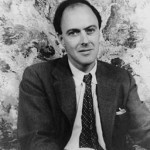 “By the time I am nearing the end of a story, the first part will have been reread and altered and corrected at least one hundred and fifty times. I am suspicious of both facility and speed. Good writing is essentially rewriting. I am positive of this.” — Roald Dahl
“By the time I am nearing the end of a story, the first part will have been reread and altered and corrected at least one hundred and fifty times. I am suspicious of both facility and speed. Good writing is essentially rewriting. I am positive of this.” — Roald Dahl
“But why must writers edit their own work?” I’ve been asked by aspiring writers. “Writers write and editors edit; isn’t that the way it works?”
Well, no, that’s not how it works. Writers do need editors to see what they’re too close to see, but that’s at a later stage. To get to that stage, they first need the ability to edit their way toward the heart of their stories.
Imagine Rodin sculpting “The Thinker.” Does he simply envision the finished work, grab his chisel, and sculpt it fluently in all its detail? Of course not; such a thing is inconceivable. The vision must be there, or nothing will happen, but we understand instinctively that the artist must first produce a rough version, which he then goes on to refine and perfect.
So, too, with fiction. No matter how impeccable writers are, their first drafts will be but a rough approximation of what their stories could become. Editing is not just a matter of chipping away excess bits or changing a word here and there. It also entails building up, shifting emphasis, adding or omitting characters and subplots, clarifying theme. Many writers do not fully understand what they’re writing about until they’ve written it. Only after they become conscious of their underlying themes can they go back and enhance their expression.
Good writers are good editors.
Disagree if you dare; or share some of your own tips on editing.
In my Next Level school of writing, I offer a 14-week online workshop called “Revising Fiction,” which leads participants (who must have a completed draft of a novel) through a series of edits. This workshop is intensive and requires a significant commitment of time. But the reward is commensurate with the effort, as students come out the other end with a greatly improved novel and tools that they can go on to apply to everything else they write. The next workshop will be offered in the spring of 2013. For more information, or to get on my emailing list (most classes fill entirely from that list), drop me a line.
A DANGEROUS FICTION is now available for pre-order, with a 30% discount on Viking’s hardcover edition.
January 17, 2013
In Praise Of Outlines
In a recent blog post, novelist Donna Gillespie makes an eloquent case for writing without an outline, a clarion call for writers to shed their bonds and dive into their stories. Outlining is a “soul-killing, oxygen-sucking waste of time.” Just start writing, she advises, and the story will emerge. As Gillespie has had several novels published, she’s clearly found a method that works for her, and I never argue with what works. I do, however, take issue with any one-size-fits-all prescription. Different strokes for different folks, after all; and “what works” can change over a writer’s lifetime or on a book-by-book basis— mysteries, I’ve found, require more mapping out than literary novels.
I recommend you read her post for yourselves; there’s a lot of good advice in there, including my favorite line: “Don’t think it through; write it through.” I remind myself of that truth every time I hit a snag in the planning stages; I’ve done this long enough to have faith that by the time I get to actually writing the scene, the solution will be clear. But that doesn’t mean one shouldn’t plan at all, just that one shouldn’t obsess over a few holes in the outline.
For the sake of writers who haven’t found their way yet, I felt someone should make the case for outlining, because for most fiction writers, it is an extremely effective tool.
I freely concede from the outset that outlining isn’t fun. I had a student once who loved it, but he was an engineer by trade. For most writers, and certainly for me, it’s the hardest part of the job, the headache-inducing prelude to the fun of writing and revising.
I once sold a movie option to a novel I hadn’t finished writing. That’s a long story and I won’t tell it all now, because it has to do with race and writing and that’s not my subject here. The short version is that I’d fallen out with my publisher over a racial disparity in my latest novel—I was white, the protagonist black—and withdrew the manuscript in a bit of a huff. It made for a good bit of publishing gossip, and my agent told it over lunch to a producer friend, who was curious enough to read pages that night. He liked them; the upshot was a movie deal and a flurry of activity that culminated in the dispatch of a screenwriter, sent to extract the ending of my novel so he could finish his screenplay.
We sat in my living room, and he asked questions that I struggled to answer, because the answers didn’t exist; they hadn’t been written yet. The more probing the questions, the more uncomfortable I felt. It was like taking an exam on a subject I’d never studied but was expected to know, only more visceral than that: an intimate discomfort, as if he were trying to extract something that wasn’t ready to be born.
That, in a heightened form, pretty much describes the sensation of outlining. Summarizing a story that has not yet been born is a painful exercise. Characters come out flat and utilitarian. Plotlines emerge naked and shivering, barely viable. An embryonic story is not a thing of beauty.
And yet I do outline my books before I write them, more so now than when I was a young writer. What’s worse, I make my writing students do it too: not because it’s the only way to write, but because it’s well worth trying, for several reasons.
1. Professionals do it. Not all; I know several first-rate writers who never outline. But the vast majority of published writers I know put in a great deal of preparatory work before they begin writing their novels; and as a former literary agent and editor, I’ve known quite a few.
2, Outlining is more efficient. If you know where you’re heading, chances are you’ll spend a lot less time revising after the first draft is done.
3. There’s less chance that the writer will lose his way. A lot of novels die on the vine. Writers lose focus and impetus, and their stories end up dead on the side of the road. As a writing teacher, I see for more books lost due to lack of planning than to too much.
4. Outlining reveals major problems in one’s concept for a novel, which gives the writer a chance to address them before investing hundreds of hours in a structure that’s fundamentally unsound.
5. Writing an outline builds up a head of steam. When you spent weeks or months planning, researching and outlining a novel, it is the most tremendous relief to actually start writing it. A lot of energy has been pent up; when it’s released, it provides great impetus to the novel.
Outlines aren’t straightjackets. Stories grow and evolve in the telling. The book I take to the dance is very different from the book I go home with, a fact of writing that agents and editors know well. Things happen during the writing, magical things sometimes, and those get incorporated. Sometimes the story takes an expected detour; you never know what you’ll find. Road trips don’t always go as planned either, but as every traveler knows, it helps to have a map.
What works for you? Have you tried both outlining and winging it? Does it depend on the book, do you think, or the writer?

